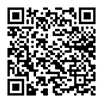Demat account basics

Demat deposits, also known as dematerialized accounts, were first launched in India in 1996, and the Indian capital market has never looked back since. Following the introduction of demat accounts, our country has seen a steady increase in the number of companies listed and investors participating in stock exchanges such as the BSE and NSE.
India had 39.3 million demat accounts at the end of 2019, up from 34.8 million in 2018. In 2019, the number of demat accounts rose by 4.5 million, up from 4 million in 2018. As a result, the number of new demat accounts opened each year is growing.
One of the main reasons for this expansion is that Indian investors turn away from conventional investment assets like real estate, gold, and fixed-income securities. Finally, mutual funds, stock portfolios, futures, commodities, currencies, and initial public offerings (IPOs) draw their attention.
But, before we get into demat accounts, saving, and selling, it's essential to grasp the fundamentals. So, let's start from the beginning.
Demat deposits, also known as dematerialized accounts, were first launched in India in 1996, and the Indian capital market has never looked back since. Following the introduction of demat accounts, our country has seen a steady increase in the number of companies listed and investors participating in stock exchanges such as the BSE and NSE.
India had 39.3 million demat accounts at the end of 2019, up from 34.8 million in 2018. In 2019, the number of demat accounts rose by 4.5 million, up from 4 million in 2018. As a result, the number of new demat accounts opened each year is growing.
One of the main reasons for this expansion is that Indian investors turn away from conventional investment assets like real estate, gold, and fixed-income securities. Finally, mutual funds, stock portfolios, futures, commodities, currencies, and initial public offerings (IPOs) draw their attention.
But, before we get into demat accounts, saving, and selling, it's essential to grasp the fundamentals. So, let's start from the beginning.

Open a Demat Account
What is a demat account?
A demat account is a secure electronic storage facility for securities. It functions similarly to a bank account, allowing you to keep track of, purchase, and sell shares on financial markets such as the BSE, NSE, and MCX. You will use a demat account to deposit, purchase, and sell stocks, bonds, mutual funds, initial public offerings (IPOs), securities, futures, and exchange-traded funds (ETFs).
The National Securities Depository Limited (NSDL) deals with NSE-traded securities. The Central Depository Securities Limited (CSDL), a depository for the BSE, is the depositories for demat accounts in India.
Types of demat accounts
In India, there are three types of demat accounts.
1. For investors who live in India, a regular demat account.
2. Non-resident Indians should have a repatriable demat account (NRIs). Funds can exchange internationally using this demat account, although it must connect to an NRE bank account.
3. The non-repatriable demat account is the third form of demat account. NRIs use it as well, but they are unable to move funds overseas via this demat account. An NRO bank account must link to this type of demat account.
The benefits of a demat account
All of your stocks, including shares, options, futures, commodities, mutual funds, debentures, ETFs, and bonds, are held in electronic format with a demat account. From a single window, you can purchase, sell, and keep these securities as well as manage your investment portfolio. A demat account has five significant advantages that are essential for investment and trading performance.
Constant and easy access
A reasonable demat service account allows you access to the market 24×7, on any smartphone, from anywhere in the world. You can conveniently access your account from a desktop, mobile, computer, or mobile, so you don't have to be in your office to position a trade, save, or watch your portfolio.
Liquidity
Trading and investing in the capital markets requires liquidity or the opportunity to sell your shares anytime you need money. It's impossible to obtain quick liquidity with actual shares and certificates, but with a demat portfolio, you'll be able to purchase or sell when the market reopens the next day. A demat service allows you to quickly position a buy or sale order and have it completed in a matter of seconds, well before any meaningful market movement.
Convenience
With a demat account, trading in securities is fast and straightforward. It's much better if you have a 2-in-1 demat and banking portfolio, which helps you to sell and save at the same time. To prevent delays in completing trades, make sure you have your demat and trading accounts with the same broker.
You will exchange and invest in equities, IPOs, stocks, currencies, derivatives, and mutual funds with Dealmoney's 2-in-1 demat and investing account.
Efficiency and speed
Before the complete implementation of demat services in India, investors had to wait weeks, if not months, for refunds, interest, and dividends credited to their accounts. Demat accounts make it simple to receive dividends, rights, incentives, and stock splits and participate in initial public offerings (IPOs).
Less risky
When you hold your electronic form securities, you don't have to think about the burglary, injury, and fraud risks that come with physical certificates. You don't have to think about misplacing or damaging the belongings because they're holding in an automated format.
Before you open a demat account, there are a few things you can check.
You can look at a few things before opening a demat account with a broker, including:
– It doesn't matter if you're working with a discount or full-service brokerage business.
– Demat account brokerage costs, recurring management fees, processing fees, and other fees.
– Broker credentials – whether the broker or the DP is SEBI-registered.
– Look at any outstanding lawsuits or allegations against the broker or firm.
– See how your demat and trading account provide value-added services like analysis, insights, and analytics.
Through a Dealmoney 2-in-1 demat and trading portfolio, whether you're new to investing and trading or a seasoned veteran, you'll have access to industry-leading trading sites, well-researched business forecasts, and tips. You will experience zero cost equity distribution transactions for the rest of your life with Dealmoney, and you can sell intraday in different business segments of the BSE, NSE, MCX, and NCDEX for only Rs. 20 per order.
Recent Posts
Download The Dealmoney App Now
Latest Top 10 Performing Funds
| Scheme Name | NAV on | Holdings | Returns (%) | Fund Manager | Rating | |
|---|---|---|---|---|---|---|
| Tata Nifty Pvt Bank ETF | 112.1161 | ₹ 953.7591472 Cr | 24.1384707538614% | Sailesh Jain | 1 | |
| ICICI Pru Technology Fund(G) | 53.41 | ₹ 35414.76052571 Cr | 23.1765904789635% | Sankaran Naren , Vaibhav Dusad , Priyanka Khandelwal | 2 | |
| Edelweiss ETF - Nifty Bank | 2047.9931 | ₹ 72.31 Cr | 22.3638817077987% | Bhavesh Jain , Hardik Verma | 3 | |
| SBI-ETF Nifty Bank | 202.4212 | ₹ 242503.74 Cr | 22.2708812094408% | Raviprakash Sharma | 3 | |
| Kotak Banking ETF | 205.2306 | ₹ 379580.55 Cr | 22.2131952311096% | Devender Singhal , Satish Dondapati | 3 | |
| Motilal Oswal Nifty Bank Index Fund-Reg(G) | 7.3638 | ₹ 4036.5684866 Cr | 22.0669674905138% | Swapnil P Mayekar | 2 | |
| Tata Digital India Fund-Reg(G) | 13.9041 | ₹ 34333.78900578 Cr | 19.4938524951637% | Meeta Shetty , Rahul Singh | 2 | |
| Aditya Birla SL Digital India Fund(G) | 51.49 | ₹ 38115.86 Cr | 19.046875% | Kunal Sangoi | 5 | |
| Kotak Small Cap Fund(G) | 61.52 | ₹ 124241.39 Cr | 18.6944214108026% | Pankaj Tibrewal | 2 | |
| Quant Small Cap Fund(G) | 38.9382 | ₹ 176.1202212 Cr | 17.7394878340161% | Ankit Pande , Vasav Sahgal , Sanjeev Sharma | 1 |
| Scheme Name | NAV on | Holdings | Returns (%) | Fund Manager | Rating |
|---|
